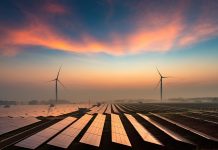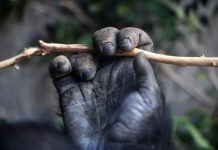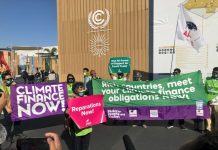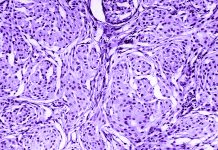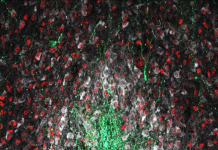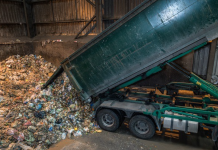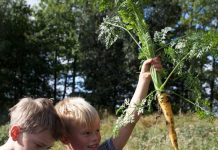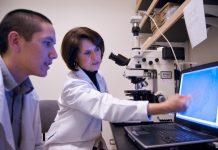Home 2024
Archives
An economic analysis of social welfare
Yew-Kwang Ng, Emeritus Professor at the Department of Economics, Monash University, evaluates social welfare from an economic angle.
Climate change threatens beach tourism
The Climate Service Center Germany (GERICS) and the Blue Flag Programme cooperate on the beach and coastal tourism adaptation to climate change.
Out of the frying pan and into the fire: The gas stove toxicity debate
Jeremy MacMahon, Chelsea Unkel and Pamela J. Lein from the University of California, Davis, unpack household air pollution, focusing on the gas stove toxicity debate.
What has been the impact of Brexit on the UK economy?
Sarah Hall, University of Nottingham, discusses and assesses the impact of Brexit on the UK economy, in combination with COVID-19 and the Ukraine war.
Political compromises: A double edge sword
Associate Professor Mariken A.C.G. van der Velden at Vrije Universiteit Amsterdam discusses how political compromises can hinder affect a functioning democracy.
Moral markets in energy: Bridging the gap between policy, industry, and society
Dr. Panikos Georgallis, an Associate Professor at the University of Amsterdam, does research on the interaction between companies and their socio-political environment when adapting to moral markets.
The function of fingerprints: How can we grip?
Professor Gun-Sik Park, in the Department of Physics and Astronomy at Seoul National University explores the function of fingerprints from a lens of understanding the mechanism of our human ability to grip.
Uncovering the potential for geoscience research in Canada’s North
David Mate, Executive Director of the Northern Canada Division, Geological Survey of Canada, shares how the GEM-GeoNorth program is using geoscience research to improve the quality of life for Canadians.
DEUSTO 6i: Helping young researchers access doctoral training
Through its two Horizon 2020 Marie Sklodowska-Curie COFUND projects, DEUSTO is providing up to 35 doctoral training fellowships between 2016 and 2025 to attract excellent doctoral candidates from all over the world.
Climate leadership now: Climate finance & political will
Richard Beardsworth, Professor of International Relations and Head of School from POLIS, University of Leeds, unpacks the present challenge of climate leadership: climate finance and political will.
Exploring current and future therapies for childhood astrocytoma
Here, Doctor Peter J Houghton explains current therapies for childhood brain cancer what needs to change to ensure better outcomes for children diagnosed with astrocytoma in the future.
Keeping your teeth for life: Why use a disclosing agent?
Dr. Neha Dixit and Dr. Marcel Donnet argue that you can’t ignore what you see when it comes to keeping your teeth for life. Particular focus is given to Guided Biofilm Therapy and the use of a disclosing agent.
The miniNO project: Helping to minimize risks of premature births
Associative mechanisms linking a defective minipuberty to the appearance of mental and non-mental disorders: infantile NO replenishment as a new therapeutic possibility.
Zero food waste city 2049: Identifying barriers to transition pathways
An Urban Living Lab in the UK have tested newly integrated systems approaches and valuation methods to understand how to reduce the city’s food waste.
In the footsteps of Carl von Linné: Sustainable food production
Refarm Linné strives to increase sustainable food production throughout the country, through local, sustainable, and circular production, both in the city and the countryside.
The importance of good childcare services for gender equality
Professor Ingela Naumann at Fribourg University discusses the impacts of the COVID-19 pandemic on childcare arrangements and family wellbeing, and how it highlighted gendered care norms.
How calorimetry can pave the way for mature and safe sodium-ion batteries
Dr Carlos Ziebert, leader of the group Batteries – Calorimetry and Safety, KIT, explains how electrochemical-calorimetric methods help to develop and safely upscale sodium-ion batteries.
The spikiness of the density of states in quasicrystals
The spikiness of the electronic density of states in quasicrystals is believed to be inherent to QCs and so-called approximants (APs) to QCs.
Observing current social issues in Japan from the perspective of Roman law: part 3
According to Professor Mariko Igimi, Kyushu University, we still have much to learn from Antiquity and Roman Law in relation to the current issues of an aging society in Japan.
Cutaneous chronic wounds: A worldwide silent epidemic
Chronic wounds develop due to the defective regulation of one or more of the complex cellular and molecular processes involved in proper healing. Here Manuela Martins-Green explores novel potential treatments for wound chronicity.







